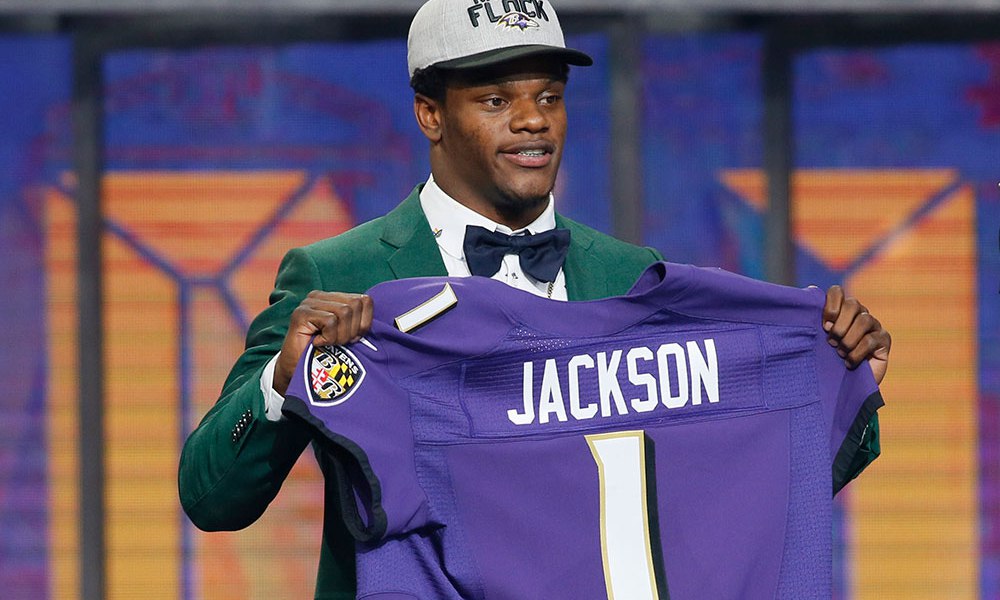At this year’s Sports Lawyers Association Conference (SLAC) in Washington, D.C., NFLPA Director DeMaurice “De” Smith hinted at his stance towards the argument surrounding NFL rookies who have thought about existing without an agent.
Since the restructuring of its collective bargaining agreement in 2011, the NFL and the NFLPA would turn the complication of teams signing rookies into simplified language. That complication would be highlighted by Sam Bradford at the 2010 NFL Draft. The team formerly known as the St. Louis Rams would select him first overall, a $78 million ticket that would empty the organization’s pockets. A year later, and the rookie contract landscape would be altered dramatically.
Cam Newton, the first overall pick of the 2011 NFL Draft, would end up making just $22 million, or under 29-percent, of Bradford’s six-year deal due to the side effects of the newest collective bargaining agreement. That wide margin would not only illustrate the fallacies of being an NFL rookie in the 21st century, but it would forever redefine the relationship between rookie and agent.
Up until the reign of De Smith as NFLPA’s director, agents would basically salivate at any top draft pick, since rookie contracts would be outlined by the selecting team’s salary cap and not by the checks and balances of the newly-renovated NFLPA. As a result of the boundless financial potential seen by agents pre-2011, the agent-rookie duo would morph into a mating game.
Since 2011, however, some NFL rookies and veterans alike, are becoming revolutionaries in how they negotiate themselves as independent contractors. Russell Okung, the sixth overall pick in the 2010 NFL Draft, would bare witness to the delicacy of not having an agent when he negotiated his second contract. According to an entry in The Players’ Tribune, Okung would imagine a fantasy world full of designer suits, while also supporting himself and his family for eternity. He would further note that neither of those would be reality without representation. Instead of conforming to an agent, Okung would gamble on the chances of a smaller paycheck with little-to-no marketability attached to himself. But Okung would stand by his conviction, encouraging NFL players to “…take ownership of your career and your livelihood.”
Any rookie in any professional league should weigh the pros and cons of going into a contract without proper guidance. Lamar Jackson, the final pick of the first round in the 2018 NFL Draft, made headlines by not signing an agent. Instead, he hired a sports lawyer and his mom managed his brand. According to an interview at the 2018 NFL Combine, Jackson would fully interpret the meaning behind “rookie wage scale,” which points out that NFL rookies are paid a predetermined amount during their first years of a contract, with or without the help of an agent. Knowing that, Jackson has been fully confident in his self-worth, sports lawyer and mom to steer him towards success as a rookie quarterback for the Baltimore Ravens.
At the end of the day, there are some disadvantages of not having an agent, especially during the pre-NFL Draft stage. Without an agent, a rookie isn’t coached for the stress-inducing interviews at the NFL Combine and he isn’t granted access to certain training facilities, which an agent would financially handle. Lastly, an agent-less rookie is denied the opportunity of any prosperity as a brand. This behavior of neglecting representation, however, seems to be less about notoriety and more about the gratitude of playing the game without additional obligations, distractions and/or attention. Then again, some former NFL rookies prefer bigger and better things, like hopping out of a glossy McLaren and signing an endorsement deal with Under Armour that’s worth more than $1 million per year – all because an agent gives them that heightened value.
Agents aren’t a dying breed in the NFL, but there’s an uprising by NFL rookies, who wish to flaunt their individualism as businessmen. Resources, otherwise offered by an agent at the rookie’s disposal, are sacrificed in lieu of nontraditional methodology, where marketing isn’t the only measure to success. Yes, agents are absolutely advantageous to an NFL rookie, but to the minority of those that bypass representation, it’s simply a matter of preference. Thanks to 4NJBets promo code for the list of legal betting opportunities.
